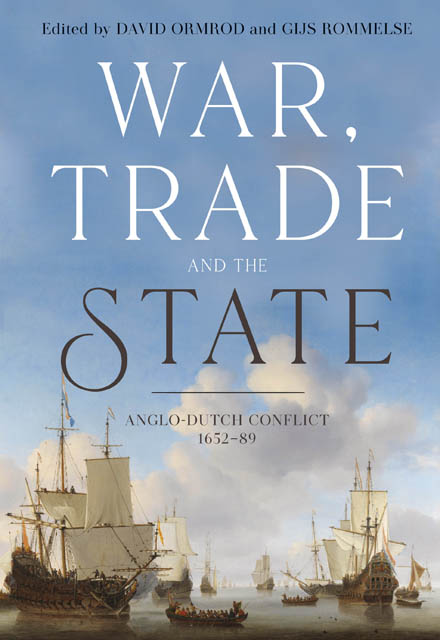1 - Introduction: Anglo-Dutch conflict in the North Sea and beyond
Published online by Cambridge University Press: 18 January 2023
Summary
It was about fifty years ago [the 1920s] that the social sciences made the discovery that human life was subject to fluctuations and swings of periodic movements, which carry on in endless succession. Such movements, harmonious or discordant, bring to mind the vibrating chords or sounding-boards of schoolday physics. G.H. Bousquet, for instance wrote in 1923: ‘The different aspects of social movement [have] an undulating rhythmic profile, not one that is invariable … but one marked by periods when intensity increases or diminishes.’ [And] the combination of movements … forms the conjuncture or rather the conjunctures. For there may be different conjunctural rhythms affecting the economy, political life, demography and indeed collective attitudes …
(F. Braudel, Civilization and capitalism, 15th–18th century, vol. III, The perspective of the world, 1979 (English translation 1984), p. 71)When we planned the two conferences on which this book is based, we expected that the United Kingdom would remain in the European Union, with some adjustments. Historians, it turns out, are no better than economists in anticipating the likely course of events. Whatever the final outcome, the ‘leave’ result produced by the referendum, it now appears, forms part of a wider series of symptoms of a deep malaise afflicting European societies, including the resurgence of nationalism, xenophobia and rejection of multiculturalism, alongside growing demands for protectionism in some quarters. Growing disparities of wealth and income since the 1980s, widespread corporate tax evasion and the imposition of austerity programmes following in the wake of the financial crisis of 2008 have helped trigger these discontents. The root causes of that crisis, in turn, can be seen to lie in the deregulation of financial markets across the western world which began in 1971, when the United States of America withdrew dollar convertibility and effectively ended the Bretton Woods system. Most commentators agree that globalisation has been seriously mismanaged over the past forty years, but disagreement reigns amongst those promoting policy prescriptions for its reform, as well as those who envisage a new post-capitalist world rising from the ashes of financial catastrophe. Some, indeed, have argued that we are moving into an era of ‘disorganised capitalism’, a form of systemic chaos, where regulation by national governments is no longer possible.
- Type
- Chapter
- Information
- War, Trade and the StateAnglo-Dutch Conflict, 1652-89, pp. 3 - 34Publisher: Boydell & BrewerPrint publication year: 2020



